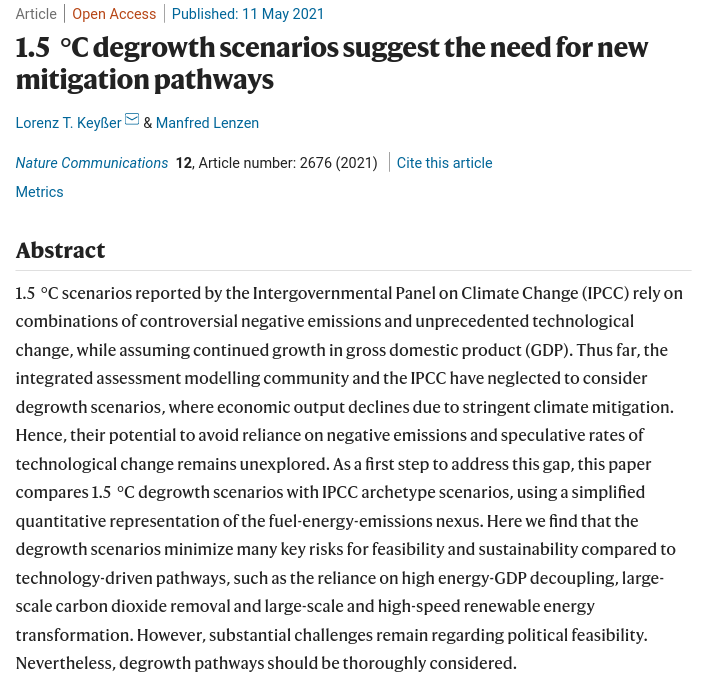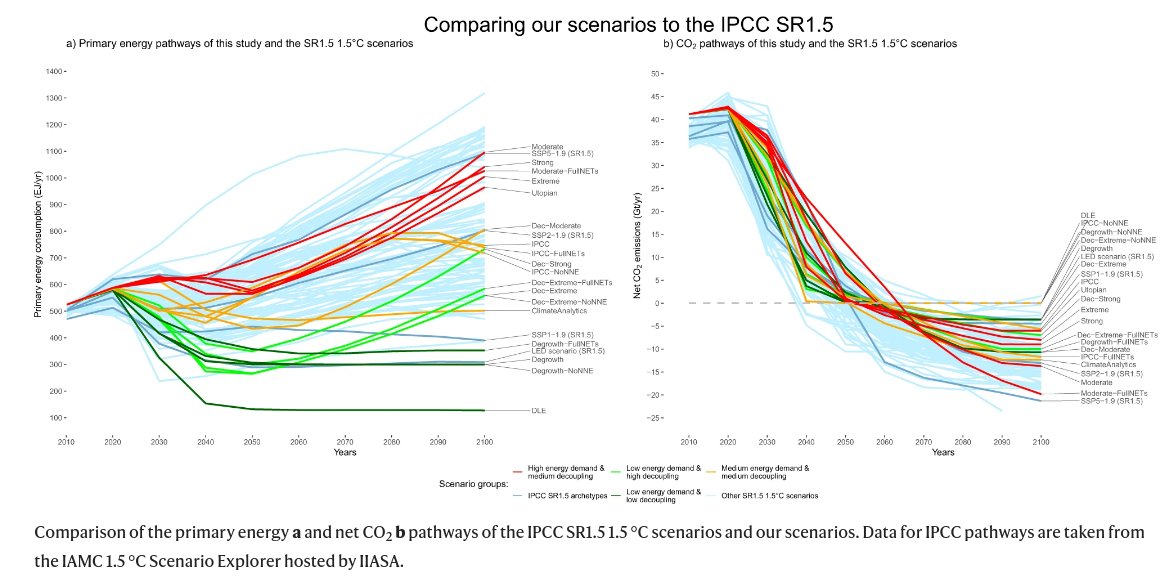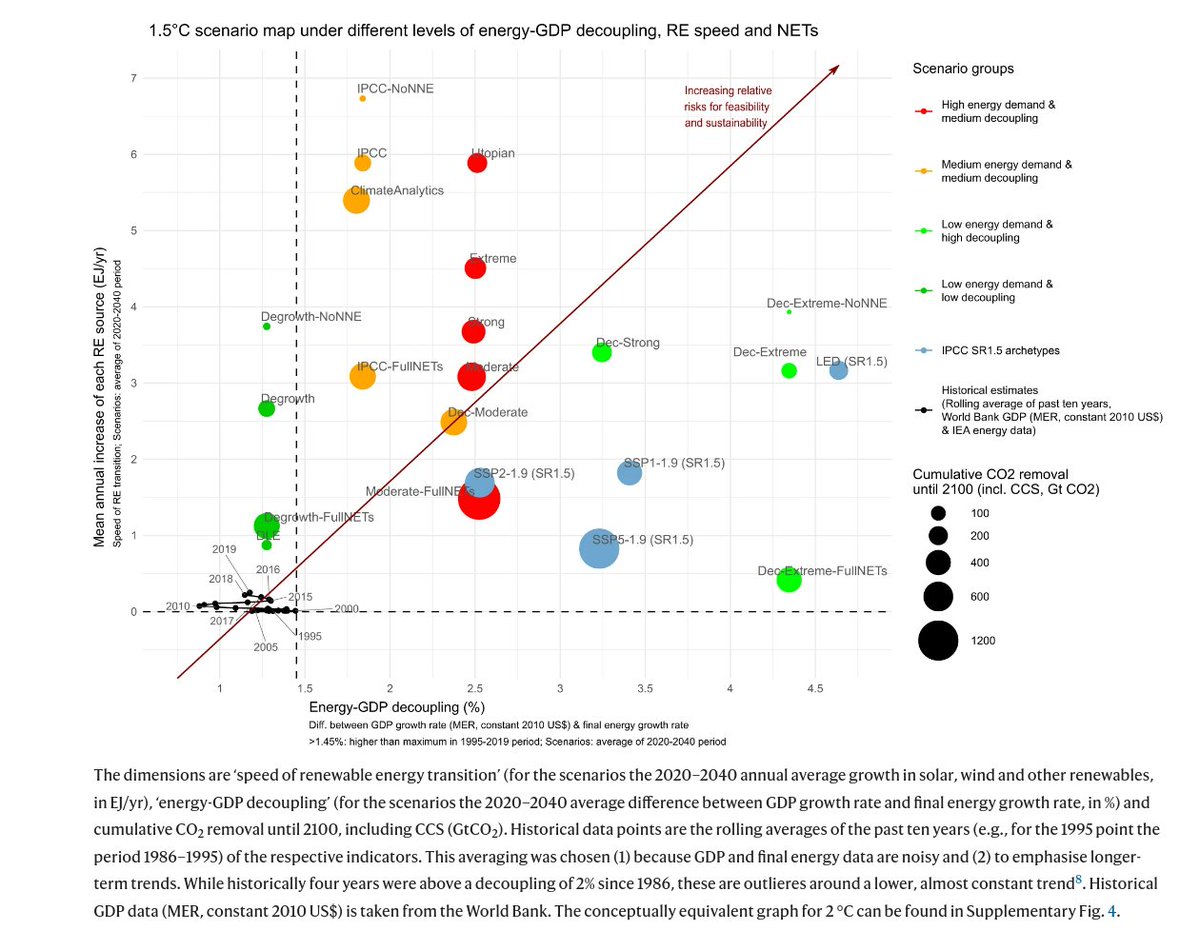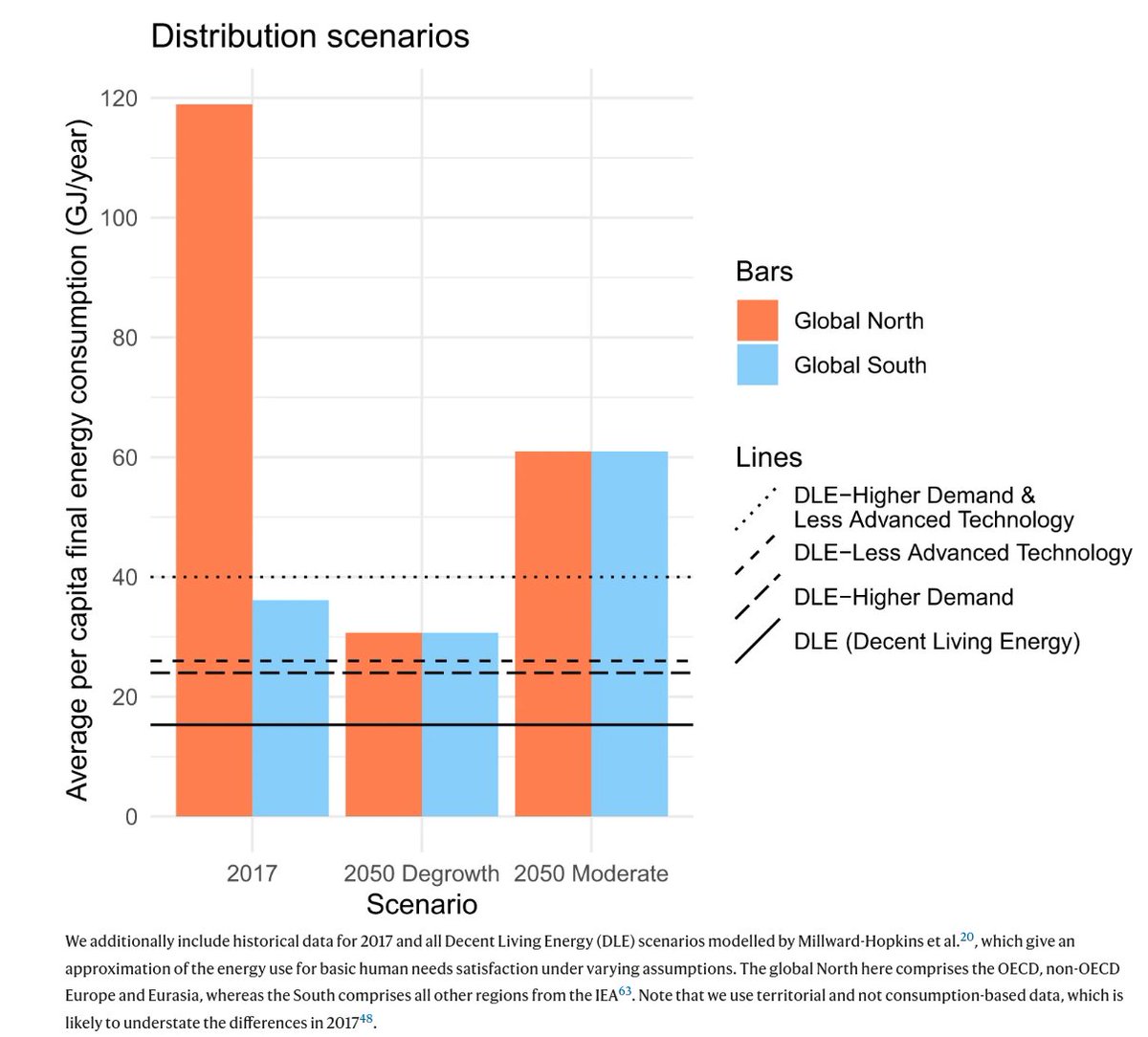
New paper out now @NatureComms, open access:
1.5°C #degrowth scenarios suggest the need for new mitigation pathways
rdcu.be/ckoh6
I’m super excited to share this with you. Here is a thread on the paper. 👇👇👇 /1
1.5°C #degrowth scenarios suggest the need for new mitigation pathways
rdcu.be/ckoh6
I’m super excited to share this with you. Here is a thread on the paper. 👇👇👇 /1

The starting point is that almost all scenarios by the integrated assessment modelling community, summarized by the IPCC, assume continued economic growth even in wealthy countries, while lack of growth is assumed to hamper mitigation. #Degrowth scenarios are neglected. /2
But empirical evidence shows that growth is connected to increasing energy & material use, making decarbonization harder – like fighting an uphill battle. To reconcile growth with the climate targets, established scenarios assume controversial & risky technological changes. /3
These include unprecedented amounts of negative emissions, energy efficiency improvements & renewable energy expansion. The degree to which #degrowth could reduce the reliance on these changes is unexplored. What does degrowth mean? See below👇👇/4 annualreviews.org/doi/10.1146/an… 

In our paper, Manfred Lenzen & I use a very simple model of global energy use & CO2 emissions to compare #degrowth scenarios with archetypes from the IPCC 1.5°C report. We do this for key relative risks for feasibility & sustainability, e.g. negative emissions & efficiency. /5 

We also include discussions on equity as well as political & economic feasibility. We find that #degrowth scenarios minimize many of these key risks compared to established pathways. They are much closer to historical data points here than their technology-driven counterparts. /6 

To enable decent living standards globally, this implies that the global North strongly reduces its energy & material use, adopting a #degrowth pathway. Research shows that this can be done while maintaining wellbeing: nature.com/articles/s4189…, sciencedirect.com/science/articl… /7 

Note that our simplified modelling has many limitations, which we address in the discussion & method. It can only be a very first step to modelling #degrowth & can not replace the more complex integrated assessment modelling, but is a supplement to it. /8
In contrast to technology-driven pathways, #degrowth scenarios currently show relatively low political feasibility, since they imply deep changes to capitalist power structures, cultures & mind-sets in order to make wellbeing independent from economic growth. /9
But since social change is complex & unpredictable, while political feasibility can change with more research exploring it & social movements pushing for changes, #degrowth pathways should be as thoroughly researched as technology-driven ones. /10
Established climate scenarios rely on far-reaching technological change. Given the existential crises we are facing & the little progress achieved, scenarios reducing this reliance & connected risks by focusing on deep social change should be explored just as extensively. /end
I have to add a huge (!) thank you to Manfred Lenzen for making this paper possible. I am also very thankful for @NHWzurich funding the article-processing charge. Many more people added to this paper, as shown in the acknowledgments. Thank you!
• • •
Missing some Tweet in this thread? You can try to
force a refresh



